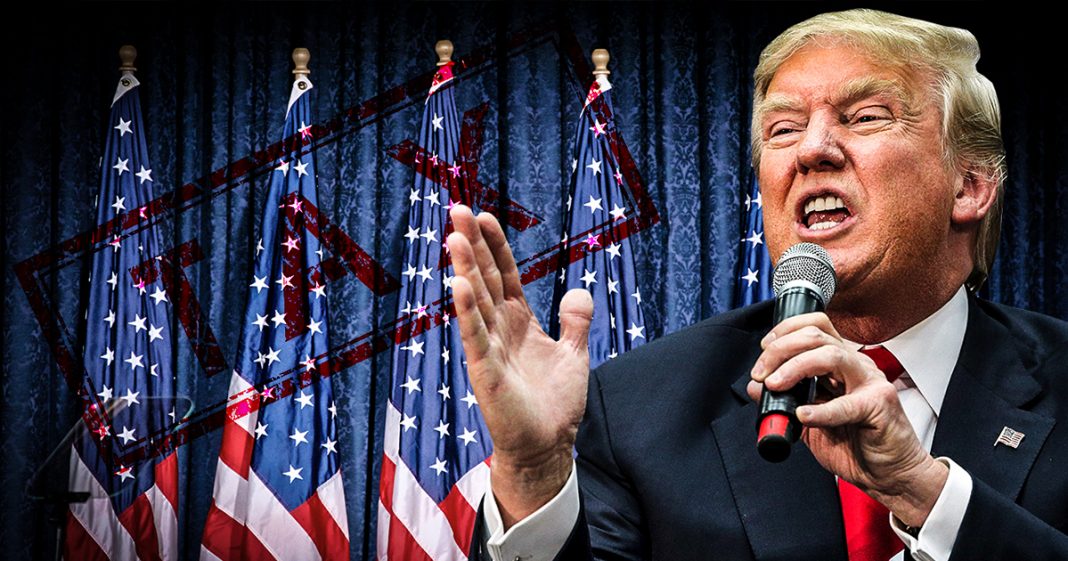As Trump continues to fill the swamp he promised to drain with the worst of the worst, being enabled by the most openly-corrupt GOP Congress since the Harding and Coolidge Administrations, it is easy to feel despair. It seems as if the checks and balances that the Founders put in place to rein in monsters like Trump have gone by the bye.
The good news is that a little-known, four-decade-old budget rule is still in place that can help stop the worst legislative excesses in their tracks if they reach the Senate. It’s known as the “Byrd Rule.”
The so-called Byrd Rule was an amendment to the Congressional Budget Act of 1974, which allows any member of the Senate to block legislation during the Reconciliation Process if it is determined that (A) said legislation would increase the federal deficit by a significant amount beyond ten years, and/or (B) it is “extraneous” under the terms of the Budget Act.
Under the Byrd Rule, there are a number of reasons as to why a provision would be considered “extraneous,” one of which is anything that crosses the line from budget issues into policy making. This is what would have shot down the GOP’s attempts to replace the Affordable Care Act had it reached the Senate (thankfully, it didn’t). A provision in so-called “Trumpcare” would have allowed insurers to charge patients of 30% penalty if they had not had coverage over the prior year. That provision strayed into the area of regulation, having nothing to do with the federal budget – and without that provision, the entire bill was essentially dead in the water.
At the moment however, it is that first point – increasing the Federal deficit – that may very well save America from what Wall Street insider-turned Treasury Secretary Steven Mnuchin is calling the “biggest tax cut” in history. While Mnuchin claims it is about “creating jobs and creating economic growth,” the heart of the proposal is a massive reduction in the top corporate tax rate from its current 35 percent to a mere 15 percent. Without going into all the reasons why that would be a disaster for the middle class and the working people of this country (after all, we’ve been down this road before – repeatedly), it needs to be pointed out that such a massive tax cut for corporations would add an equally massive amount to the Federal deficit, unless there was a way to offset it.
Needless to say, Trump’s administration hasn’t thought about that part of it (beyond the fact that it would most certainly benefit his own company’s coffers). Without a real way to make up that revenue, the plan cannot pass the legislature.
Here is how it works: While the GOP is enthusiastic about any plan that would rip off the 98% in order to benefit their corporate masters, that fact remains that GOP members of Congress will have to use reconciliation in order to move the bill forward because it’s a good bet that the Democrats will not be on board. At that point, the plan runs up against the Byrd Rule’s 10-year provision. They could conceivably get around that rule by making such tax cuts temporary, as they were under Bush II – but because any corporate tax cut extending three years or more affects the budget beyond that ten-year limit, they won’t fly. On the other hand, while a two-year corporate tax cut might be pushed through, it would have no appreciable effect on the economy or corporate behavior.
According to House Speaker Paul Ryan’s Senior Tax Counsel, George Callas:
“A two-year corporate rate cut…would not alter business decisions. It would not cause anyone to build a factory. It would not stop any inversions or acquisitions of U.S. companies by foreign companies. It would just be dropping cash out of helicopters onto corporate headquarters.”
Callas adds that even if McConnell can worm it through using some kind of procedural skulduggery (as he is known to do), there are a number of political reasons – many having to do with the increasing outrage among constituents – why it won’t get the votes necessary to pass.
Of course, all that Trump and his thieving cronies and enablers would have to do is come up with a way to pay for those corporate tax cuts – but, between their obsession with short-term gain at the expense of the rest of us and incapability to think beyond next quarter’s profit & loss statement, they haven’t considered that part of the equation.
That shortsightedness – and the checks and balances that thankfully, still exist – may very well be what stands between us and yet another economic disaster like those we suffered under Reagan and Bush II.




![Senator Schumer: “Single Payer [Health Care] is On The Table”](https://sandbox.trofire.com/wp-content/uploads/2017/07/Universal-Healthcare-218x150.jpg)